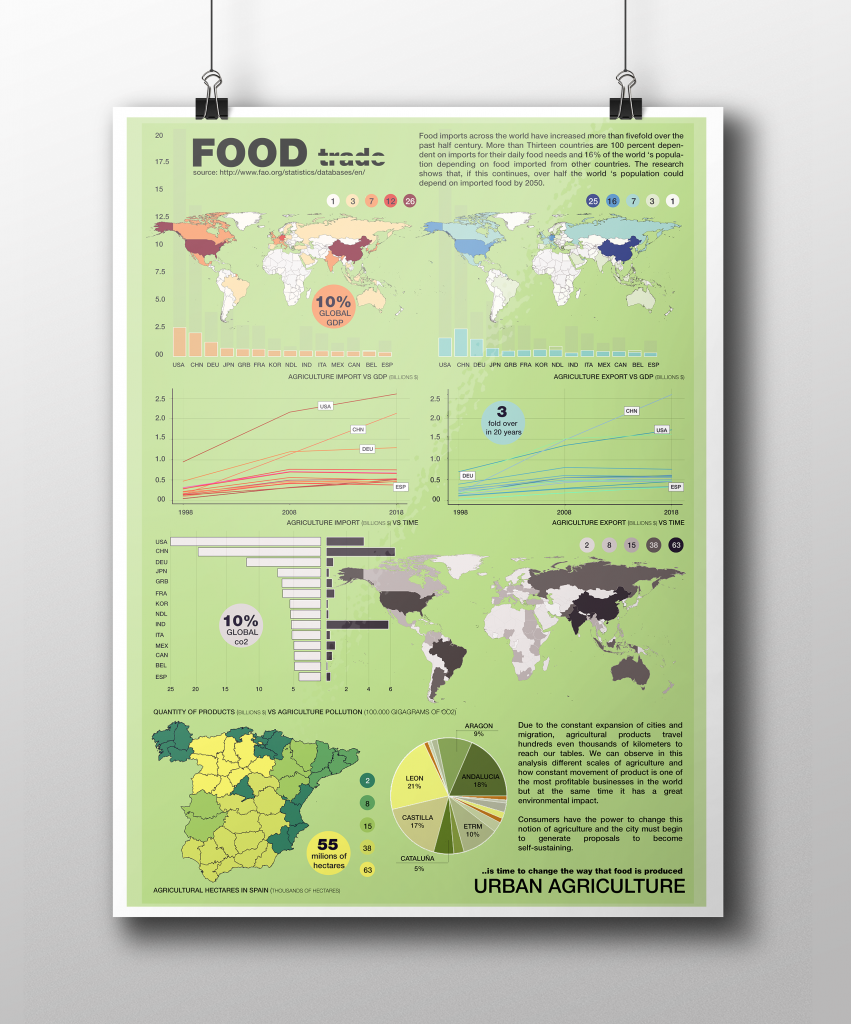Food trade exponential growing.
The food travels hundreds of kilometers to reach our kitchens.
The environmental cost of agriculture.
It is time to generate a change by boycotting the system and placing our contribution to a self-sufficient city.
—————————————————————————————————————————————————————————————————
Food imports across the world have increased more than fivefold over the past half century. More than Thirteen countries are 100 percent dependent on imports for their daily food needs and 16% of the world ‘s population depending on food imported from other countries. The research shows that, if this continues, over half the world ‘s population could depend on imported food by 2050.
Due to the constant expansion of cities and migration, agricultural products travel hundreds even thousands of kilometers to reach our tables. We can observe in this analysis different scales of agriculture and how constant movement of product is one of the most profitable businesses in the world but at the same time it has a great environmental impact.
Consumers have the power to change this notion of agriculture and the city must begin to generate proposals to become self-sustaining.

FOOD TRADE_POSTER
..is time to change the way that food is produced
URBAN AGRICULTURE
Dataset: FAO, Food and Agriculture Organization of the United Nations & Ministerio de Agricultura, Pesca y Alimentación of Spain
http://www.fao.org/home/en/
https://www.mapa.gob.es/es/estadistica/temas/estadisticas-agrarias/agricultura/
Food -Trade- is a project of IaaC, Institute for Advanced Architecture of Catalonia
developed at Master in City & Technology in (2019/2020) by:
Students: Byron Cadena
Faculties: Diego Pajarito